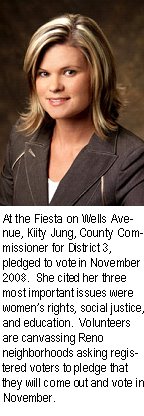In 2009, Mr. Roces traveled to Algeria on behalf of the US State Department's Youth Leadership Program. Mr. Roces taught a cultural and intensive English language class. The official language of the country is Arabic, but Berbers who are the indigenous people of the region consider the Arabs no different than the French or Romans. The berbers speak their own dialect of Tamazight. They also speak impeccable French and tend to gravitate towards European or French culture. Thus your fluency in either language immediately marks you with cultural prestige or stigma. Those who speak French, and speak it well, are believed to be more educated, open minded, liberal in dress and attitudes. Those who speak Arabic, are considered to be religious conservatives, close minded, rural and uneducated. Arabic speakers claim the the francophiles are sell-outs to European colonialism, and visa versa – Francophiles separate themselves from the Arabization of their identity and the ‘stereotypes’ associated with it. These two languages then act as the brackets ends of a social spectrum, and proficiency in one language or another indicates the speaker’s place within the socio-political spectrum. It identifies which tribe or region you come from, your heritage, education and how much social power you wield.
The article from the Journal of Ethnic Migration Studies (Vol. 29, No. 5: 865-883 September 2003) reported that central European communities on the western side of the border are not interested in learning the language of their eastern neighbours. Eastern communities, on the other hand, are strongly motivated to learn western languages. The importance attributed to English as the ‘language of globalisation’ was common to both sides.
The article drew the conclusion that the languages situated on the western side of the former Iron Curtain are the more prestigious languages. Essentially this derives from the various structures of factual or symbolic power that support them, even more so after the definitive ‘fall’ of the political-economical system formerly under Soviet control. Remember linguicism is about power projection and tied to that end is economics. With the fall of the Soviet Empire, eastern communities saw economic viability in the triumph of western capitalism, and failure in the collapse of the communist hegemony under the Soviet Union.
Mr. Roces studied Russian while he was in the Marines. He also took four years of Russian at the University of Nevada and studied Soviet Foreign Policy and Russian History. For five years with the International Center, Mr. Roces worked with international visitors from Russia, Belarus, Georgia, Kazakhstan, Turkministan,Tajikistan, and Uzbekistan. He was the office's specialist in the region. In the Russian experience, as ethnic communities and nationalities were folded into the Soviet mold, their individual languages were 'Russofied.' Under the Communist ideology, children are brought up being taught to have an egalitarian belief system, of social and economic equality. Yet, non-Russian ethnics would have to learn Russian as the universal language. This policy of indigenous language eradiction under a policy of forced assimilation was intentional, albeit subtle, projection of power and dominance over a minority culture.
The Russians recognized that the unique ‘character’ or ‘mentality’ of each ‘people’ was created by their mother tongue, as well as on the ‘one nation, one language’ principle. To eradicate the “mother tongue’ was also a way to eradicate the individual cultural identity. In 2008, over 15 years after the fall of the Soviet hegemony, Mr. Roces was working with a team of college educators from Kazakhstan, highly educated and intelligent academics, leaders of their newly independent country, were still very Russofied in their education - even with the fall of the Soviets, their educational system still mirrors a Russian model. One educator was quoted as saying that they owed a lot to the Russians for bringing education and civilization to their country. This is a people that was part of the eastern anchor of the Persian Empire and the Silk Trade.
Similar to the east-west phenomena illustrated in the Journal of Ethnic Migration Studies article, in course of Mr. Roces' work with visitors from Central Asia, he also has noticed the same phenomena on a north-south axis. Ethnic Tajiks and Uzbeks migrate north to oil and gas rich Kazakhstan to work in the oil fields and gas lines, and ethnic Kazakhs migrate north across the Russian border to work in the construction trades (sound familiar?). Economics drive this migratory pattern and learning Russian is considered needed and in fact recognized as the'langua franca' of business by the southern neighbors, but Russians do not feel compelled to learn the language of their southern neighbors.
The American experience closely follows this model with the suppression of the indigenous tribes and culture. In Native American history, there is a period of termination and forced assimilation from 1830 to 1964 in which the Native Americans were prohibited to speak their own language. Their young was forcibly gathered and removed from their traditional homes, and forced into “American Schools” and was taught English and forbidden to speak their native tongue. Then after 18 years they were returned to their homes, were they could not communicate with the elders and other adults in the community. Our children also grow up being taught an egalitarian belief system of social and economic equality under a democratic hegemony, yet it is not Navajo, Cherokee or Paiute that is being taught in our schools. In fact many of those languages have fallen to obsolescence. Even in public school the foreign languages taught are “European Languages” and not native to this region or continent. With the current xenophobia over immigration from Mexico, Spanish has fallen from favor because it is no longer associated with Europe and is now associated with illegal immigration from Central and Latin America. There is now a growing public sentiment that we should not be teaching Spanish in our schools even though we have taught in for decades. What caused the shift in public opinion towards Spanish in public schools? Clearly the social evaluation of Spanish in America has shifted and the language and those who use the language are now stigmatized reflecting the confrontation and power relation between the speech communities of Spanish speakers and English speakers.
The linguistic ideology of ‘one nation; one language’ gives rise to three key issues of linguistic ecology: the restriction of societal bilingualism to minority groups; the risk of minority language endangerment or obsolescence; and the close ties between the prestige or stigma of the language and resulting social power. Employers might assume, for example, that an employee who speaks American English with a midwestern or northern accent is more intelligent (and thus more competent) than an employee who uses Appalachian English. Teachers might assume that a student who uses so-called standard English is more respectful of authority and more intelligent than a student who uses Ebonics. Landlords might assume that a person whose first language is English will take better care of a rental property than a tenant who speaks English with a Spanish accent.
These assumptions are not inconsequential thoughts. People act on their ideas, and, as a result, prejudice becomes active discrimination. Employment, promotions, grades, recommendations, and business agreements are just a few of the things that might be affected (negatively or positively) by reactions to the ways a person uses language in speech or writing. Individuals’ private prejudices might move them to take public action so that their condemning opinions are transformed into corporate policies; educational paradigms; and local, state, and federal laws—prejudice in practice, one might say.
Dovidio and Gaertner poses three psychological supports for such behavior. As humans, we are predisposed to cognitive categorization. By grouping people into different categories, it allows us to see the differences that exist between 'others' compared to the groups we've put ourselves in. By recognizing these differences, we are then motivated to control our environment around us when we interact with outgroups. Americans, as children, are brought up being taught to have an egalitarian belief system. We want justice and equality for all minorities. We are also taught about the racial traditions that symbolize American history. These two sets of incompatible values conflict with one another, resulting in inconsistent behavior towards members of outgroups. We feel the internal negative affect based on these two sets of values and it comes out in our behaviors and attitudes on other people. As elluded to before, people act on their ideas, and, as a result, prejudice becomes active discrimination.
It is difficult to fight linguistic prejudice because the general public may be slow to condemn it or may even be skeptical about its existence because linguicism is such an insidious process. In addition, while most modern linguistics scholars acknowledge the existence of linguicism, their views have little influence on the general public (Smitherman, 2000). The burden of preventing linguicism and countering its effects must fall elsewhere.
If we really want to fight linguicism, according to Zuidema, all schools must heed the call to arms, and English language arts classrooms are among the most appropriate venues for taking action against linguicism. Because the classroom “is a major player in shaping language attitudes, and the classroom that is particularly crucial for the formation of ideas about language is that of the K–12 level” (Smitherman, 2000, p. 396), English language arts teachers should create opportunities to shape informed, positive student attitudes about language diversity for all students.
Ms. Balderson pointed out that some literacy educators have, appropriately, taken up the challenge of teaching against linguistic prejudice. As Delpit (1998) argued, it is “possible and desirable to make the actual study of language diversity a part of the curriculum for all students” (p. 19). The Standards for the English Language Arts (International Reading Association & National Council of Teachers of English, 1996) stated that students should “develop an understanding of and respect for diversity in language use, patterns, and dialects across cultures, ethnic groups, geographic regions, and social roles.”
Ms. Balderson spoke about dispelling some of the myths about language which can lead to a change of attitude in the student toward others and the self. She discussed the 4 myths associated with linguicism. Myth 1: English must obey the rules of grammar (Zuidema 2005). Ms. Balderson discussed the difference between 'bad grammar' and 'bad communication.' She points out that grammar is the organic patterns of a language, or descriptions of these patterns. Recognising this, it is correct to state that English must obey grammatical rules. However, bad grammer does nor necessarily equate to bad or broken communication. Many nonlinguists define grammar as the rules of use (which Ms. Balderson refered to as usage). Most people believe that observing the rules of usage is the same as knowing the grammar of a language. These prescriptive rules of usage assume great importance, so that many English speakers and writers are familiar with admonitions from their 3rd Grade teachers such as “Don’t say ‘ain’t,’” and “Ask ‘may I?’—I know that you can,” and “Don’t end a sentence with a preposition.”
Most people will admit, however, that breaking these kinds of socially imposed rules does not actually impede anyone’s understanding of the message a person is attempting to communicate. If a person were to say to the other "I ain't gonna do that." The listener may bristle at the usage, but still understand that the speaker's resistance and refusal to do the task. It may not be pretty, but it gets the job done.
It is important to introduce students to the distinctions between natural grammar and what Zuidema calls 'taste-based grammar early in efforts to teach against linguicism. Understanding that English must obey some kinds of grammar rules while having the freedom to disregard others is key to correcting other common misconceptions about language variation.
Myth 2: Some dialects and languages don’t have grammatical rules (Zuidema 2005). This is an argument that is frequently used to disparage stigmatized language systems such as Ebonics, Appalachian English, and Hawaiian Creole English. Instead of viewing these systems as patterned and rule governed,many people call them “slang” or “street talk” or resort to cruel labels that show blatant disrespect for the speakers themselves. Ms. Balderson shared with the class here experience as a interpreter for the deaf how some 'speakers' dismiss sign langugae as a "monkey language" because there had been an attempt to teach sign language to chimpanzees. She also spoke about the exsitance of linguistic prejudice within the deaf community based on diffrent 'dialects' within sign language as a whole. The best way for students to learn that stigmatized languages and dialects really are rule governed is to discover it for themselves through a series of guided activities.
Myth 3: Standard English is better than other varieties (Zuidema 2005). Ms. Balderson discussed the concept of English as a "moving target." One of these errors is the belief that good English is the everyday spoken language of the most educated and intelligent people. That it is relegated to the pedigreed 'blue bloods' of our society.
Many of English speakers also believe that with enough education and practice, they—like educated speakers in some Olympian Eutopia—will be able to let loose a flurry of grammatically perfect prose every time they open their mouths. In actuality, standard English is an abstract ideal based not on speech but on the model of written language (Lippi-Green, 1997). Another problem with the myth that standard English is good English is that standard English, Ms. Balderson pointed out "is a moving target." The norms for standard English are not identical in all communities. Furthermore, there are two sets of norms—the informal standard and the formal standard. A Bostonian may struggle with Appalachian English or Cajun Creole. While someone from England bristles at how Americans butcher the "Queen's English." Each variety has it's own set of grammatical rules although they are all part of the same language tree. For example, for 'yanks' it is acceptable to say "real nice"and "real cool." For the Brits on the otherhand, the proper way is to say "really nice" and "really cool."
Ms. Balderson suggested one way for students to investigate this idea is by analyzing their collected speech and writing samples to determine which ones are most likely to showcase formal standard English (Zuidema p. 671). Learners soon discover that the best English is usually found in writing and in speech based on writing, such as news broadcasts. Students also should analyze the differences between their own written and spoken language patterns. These activities help students to understand that most people, no matter how well educated, cannot hope to consistently speak with the polish of revised and edited writing—the kind of language use which is idealized as standard.
Ms. Balderson states that “Good” and “bad” language are subjective social constructions; and thastudents must hear teachers acknowledge that nonstandard register, dialect or other language is sometimes the most appropriate choice.
Myth 4: English is not as good as it used to be, and it is getting worse (Zuidema 2005). Next Ms. Balderson spoke about the widespread feeling that the English language is a fragile object and is "constantly under siege." A false nostalgia for an era than never exsisted. This is the arguement that acknowledging the
value of stigmatized language systems (currently it is Spanish) will change the English language, eventually resulting in its decline or loss. English—like other “live” languages—is constantly
changing. Some words or phrases become linguistic fads; others fall into disuse or “misuse.” Words like "taco," "yoga," "sushi" and "humus" are words that have been folded into everyday vernacular. Ms. Balderson points out the fallacy of linguistic purity. We insist that French be taught by someone from France or that Spanish should be taught by someone in Spain. By the same idea we stigmatize other varieties such as Mexican Spanish or Algerian French as tainted. But, we do not require our children to be taught English by someone from London or Eaton.
Rules of taste change, and the pronunciations, uses, conjugations, and spellings of words are altered over time to adjust to new contexts, speakers, purposes, and audiences. Zuidema calls this adaptability “survival of the fittest”when we discuss other kinds of evolution; it is evidence of the resilience of language and not a matter for concern. Ms. Balderson said that language is not some sort of fragile object to be protected. Flexibility in a language is an asset and a strength, not a cause for concern. She believed that teaching students about the history of English helps students understand why language changes.
An example was brought up during a discussion on Ebonics. The use of "axe" versus "ask." When an African American uses the word "axe" he or she is judged to be using "bad English" - he is judged to be uneducated and can't speak proper English. In English With an Accent, Lippi-Green (1997) wrote,
[W]e regularly demand of people that they suppress or deny the most effective way they have of situating themselves socially in the world. You may have dark skin, we tell them, but you must not sound Black. You can wear a yarmulke if it is important to you as a Jew, but lose the accent. Maybe you come from the Ukraine,but can’t you speak real English? If you didn’t sound so corn-pone, people would take you seriously. You’re the best salesperson we’ve got, but must you sound so gay on the phone? (pp. 63–64)
But the truth of the matter is that 'Axe' or 'Aks' is proper English, or at least it was. However, the "aks/axe" form of "ask" is just as old -- if not older, than the "ask" form itsellf-- and dates back to Old English. The best source is the Oxford English Dictionary (second edition 1989) which gives these usages (By Karen Nakamura on March 6, 2008, on a talk on deaf identity and language ideologies at Swarthmore college) :
1. trans. To call for, call upon (a person or thing personified) to come. Obs.
a1000 Cædmon's Gen. (Gr.) 2453 [Hi] comon cor{th}rum miclum cuman acsian. 1205 LAY. 19967 He lette axien anan Men {th}at cu{edh}en hæuwen stan.
2. without mention of the person asked: a. with the thing asked as an object sentence or clause (in indirect, or, less commonly, direct oration).
c1000 Ags. Ps. xiv. [2] Ic ahsi{asg}e, Hwa {th}ær earda{edh}? a1038 Charter of Eanwene in Cod. Dipl. IV. 54 {Edh}á ácsode {edh}e bis~ceop hwá sceólde andswerian for his módor. c1200 ORMIN Te{ygh}{ygh} sholldenn..asskenn what he wære. a1300 Cursor M. 7887 He askes, quat was {th}at leuedi? c1305 St. Crist. 149 in E.E.P. (1862) 63 {Th}is gode man..eschte what hi wolde. c1386 CHAUCER Wife's Prol. 21, I axe, why the fyfte man Was nought housbond to the Samaritan? c1420 Avow. Arth. xxiv, Gauan asshes, ‘Is hit soe?’ 1455 E. CLERE in Four C. Eng. Lett. 5 He askid what the Princes name was. 1549 COVERDALE Erasm. Par. Rom. Prol., He axeth not whether good workes are to be done or not. 1597 SHAKES. 2 Hen. IV, III. ii. 71 May I aske, how my Lady his Wife doth? 1711 STEELE Spect. No. 454 {page}6 To ask what I wanted. Mod. Ask who it is. He asks if you are ready. I merely ask, ‘Is it true?’
b. with the question expressed by a n. or pronoun: To ask a question, this, something. to ask (a horse) the question: to call upon him for a special effort.
c1320 R. BRUNNE Medit. 430 Some axen questyons to do hym wrong. 1387 TREVISA Higden (1865) I. 67 {Th}re questiouns bee{th} i-axed. 1803 PEGGE Anecd. Eng. Lang. 114 A true born Londoner, Sir, of either sex, always axes question, axes pardon, and at quadrille axes leave. 1850 TENNYSON In Mem. xiv, And ask a thousand things of home. 1894 H. CUSTANCE Riding Recoll. vi. 88 Until the last ten strides, when I really asked ‘King Lud’ the question.
From these examples one can see that 'aks/ax' was a valid pronunciation from 1000 CE ("acsian") through at least 1549 CE ("He axeth"). If anyone "axe," just say that no one lesser than Chaucer "spelt it" that way. This is an example of the durability and flexibility of the language and how it is constantly changing.
However, Ms. Balderson added, that it is not enough to dispel widely held myths about language variation; we also need to expose how myths and misconceptions are perpetuated so that students can participate in efforts to resist, subvert, and combat linguicism (Zuidema 2005). The first step is raising the awareness and educating those who hold the power in the classroom. The ubiquitous problem of linguistic prejudice deserves significant attention in all schools. We ought to incorporate language study at all levels in freestanding units or in partnership with literature, grammar, speech, and composition studies.While language study is not likely to eradicate language-based discrimination, it may serve to diminish our students’ and our own willingness to use language “as both a channel and an excuse for expressing some of our deepest prejudices” (Daniels, 1983, p. 5).
Zuidema suggested that students can take positive action in response to their learning and make their research efforts more consequential by offering writing assignment options that work toward eliminating the propagation of linguistic prejudice and the practice of language-based discrimination. Students can compose fiction, poetry, and creative nonfiction that reflect on linguicism; they can write articles that expose linguistic prejudice; and they can write letters, proposals, public service announcements, and other documents that seek to combat linguicism. Publishing students’ writings or delivering them to the intended audiences can empower students as activists in their world and make their learning meaningful in a way that writing for the teacher alone cannot do.
The above transcript was put together using the powerpoint presentation created by Ms. Balderson and Mr. Roces for the CATESOL presentation on 19 November 2011, from their individual lecture and research notes, and their key resource materials and articles:
1. Myth education: Rationale and strategies for teaching against linguistic prejudice; Leah A. Zuidema; © 2005 INTERNATIONAL READING ASSOCIATION (pp. 666–675) doi:10.1598/JAAL.48.8.4
2. Asserting ethnic identity and power through language; Augusto Carli, Cristina Guardiano, Majda Kaucˇicˇ-Basˇa, Emidio Sussi, Mariselda Tessarolo and Marina Ussai; Journal of Ethnic and Migration Studies Vol. 29, No. 5: 865–883; September 2003
4. Gaertner, S.L., and J.F. Dovidio. 1986. The aversive form of racism. In: J.F. Dovidio and S.L. Gaertner (Eds.), Prejudice, Discrimination and Racism: Theory and Research. Orlando, FL: Academic Press.
5. African-American Vernacular English: ethics, ideology, and pedagogy in the conflict between identity and power, Alice Ashton Filmer, World Englishes, Vol. 12, No. 2, pp. 253-270, 2003.
6. Who speaks “broken English”? US undergraduates’ perceptions of non-native English, Stephanie Lindemann, Georgia State University, International Journal of Applied Linguistics, Vol. 15, No. 05, 2005.






+of+2-27-2007-040.jpg)





















No comments:
Post a Comment